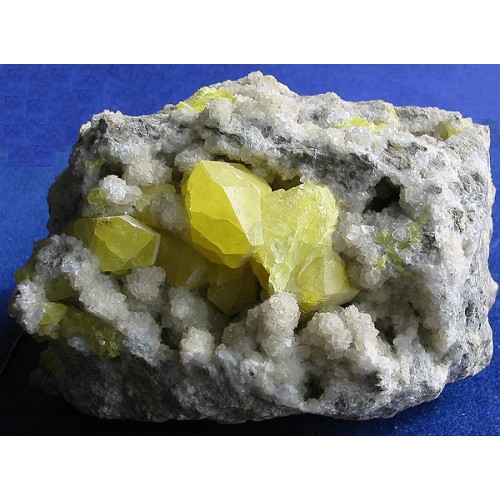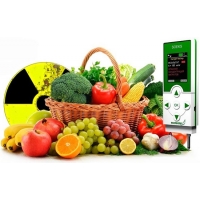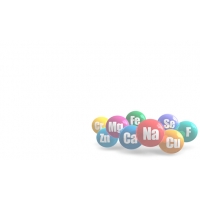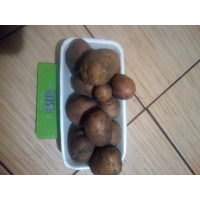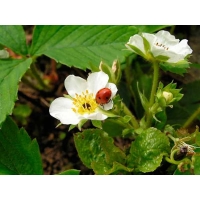Sulphur (S) on a level with phosphorus and nitrogen acts as an important factor in plant nutrition with major-nutrient element
Sulphur (S) on a level with phosphorus and nitrogen acts as an important factor in plant nutrition with major-nutrient element. Sulfur is a component of proteins, in particular the irreplaceable component of amino acids (cystine, cysteine, methionine) and phytohormones; is involved in metabolic processes such as protein biosynthesis, in redox processes, affects the functioning of the hydrolytic enzymes activity, the synthesis of carbohydrates; increases the intensity of assimilation; is involved in plant' cell fission, promotes the formation of chlorophyll iron-sulphur proteins electron transfer during photosynthesis; has positive effect on nodule bacteria formation during nitrogen fixation; helps to shape young leaf tissue, reproductive organs (including seeds); is a part of vitamins (theanine, biotin, B group), improves the nutrition with major- and minor nutrient elements (nitrogen, phosphorus, potassium, calcium, magnesium, boron, copper, zinc and molybdenum); increases plant resistance to pests, stress factors (drought, temperature changes) and affects crop yields.
In the soil sulphur is present in plant organic residues and humus (in this form, it is unavailable for plant organism); the sulfur transformation in the direction of mineralization with the participation of microorganisms is necessary, but this process in the soil environment passes too slowly, and the major part of sulfur is absorbed by the soil from the atmosphere (S02) and is available from precipitation. It is necessary to fertilize agricultural croppers with sulfates, which contain sulfur and are combined with other main substances most available to the plant (sulfur content 10-25% of the total quantity). Vegetable crops, especially tomatoes, onion, garlic, celery, various varieties of cabbage, rapeseed, sunflower, alfalfa, clover, peas, soybeans, potatoes, have quite significant need in this element; and fruit and berry woody plants and grain cultures need small amount of sulphur. Sulfur is not recommended to combine with silicon.
Sulphur deficiency:when the amount of sulfur is insufficient, a pale green color on the young leaves is formed (external characters are similar to nitrogenous nutrition deficiency (although with lack of nitrogen changes are observed on the old leaves)), after a while they turn yellow, acquire a red tint (anthocyanins are accumulated), and then die; the leaves of cabbage family plants become long, narrow; nightshade family (Solanaceae) plants have a small diameter of the stems that become lignified, hard); Asteraceae - the sunflower – forms small inflorescences, flower head has no flowering; the activity of nitrogen-assimilating nodule bacteria and the process of photosynthesis slow down in legumes. With insufficient amounts of sulfur in the soil, the growth and development of stems (they become thin, hard, fragile and lignified) are delayed, plant resistance to diseases, pests and stress factors decreases.
Sulphur interinfluence with other elements
| Antagonists (overbalance of one triggers a deficiency of another element) | Synergist (improve mutual properties of each other) | Block the each other interaction (it is not recommended to combine together) |
| Cl (chlorine) | - | - |
List of articles for the category from the blog Minor-nutrient elements
Articles list
Ukraine has an agrarian orientation of the economy and, in the modern context, one of the most perspective areas for agriculture is the use of organic products, based on the application of purely natural components, that the company AGRO.BIO manufactures and offers – concentrated liquid POTASSIC HUMATE, which helps to restore the natural components of the main active environment – the soil – rationally and effectively.
The soil environment does not always contain the enough amounts of nutrients necessary for plant growth and development, but this disadvantage can be improved by additional fertilization, in particular with POTASSIC HUMATE BALLASTLESS made of LEONARDITE produced by AGRO.BIO. It is an ecologically safe multi-nutrient fertilizer and growth stimulator of organic origin for agricultural plants promoting the increase of soil fertility.
In order to make it easier for you to get an understanding of our products, the articles about potassium humate and multicomplexes are uploaded below.
 English
English Українська
Українська Русский
Русский Espanol
Espanol French
French عربي
عربي

